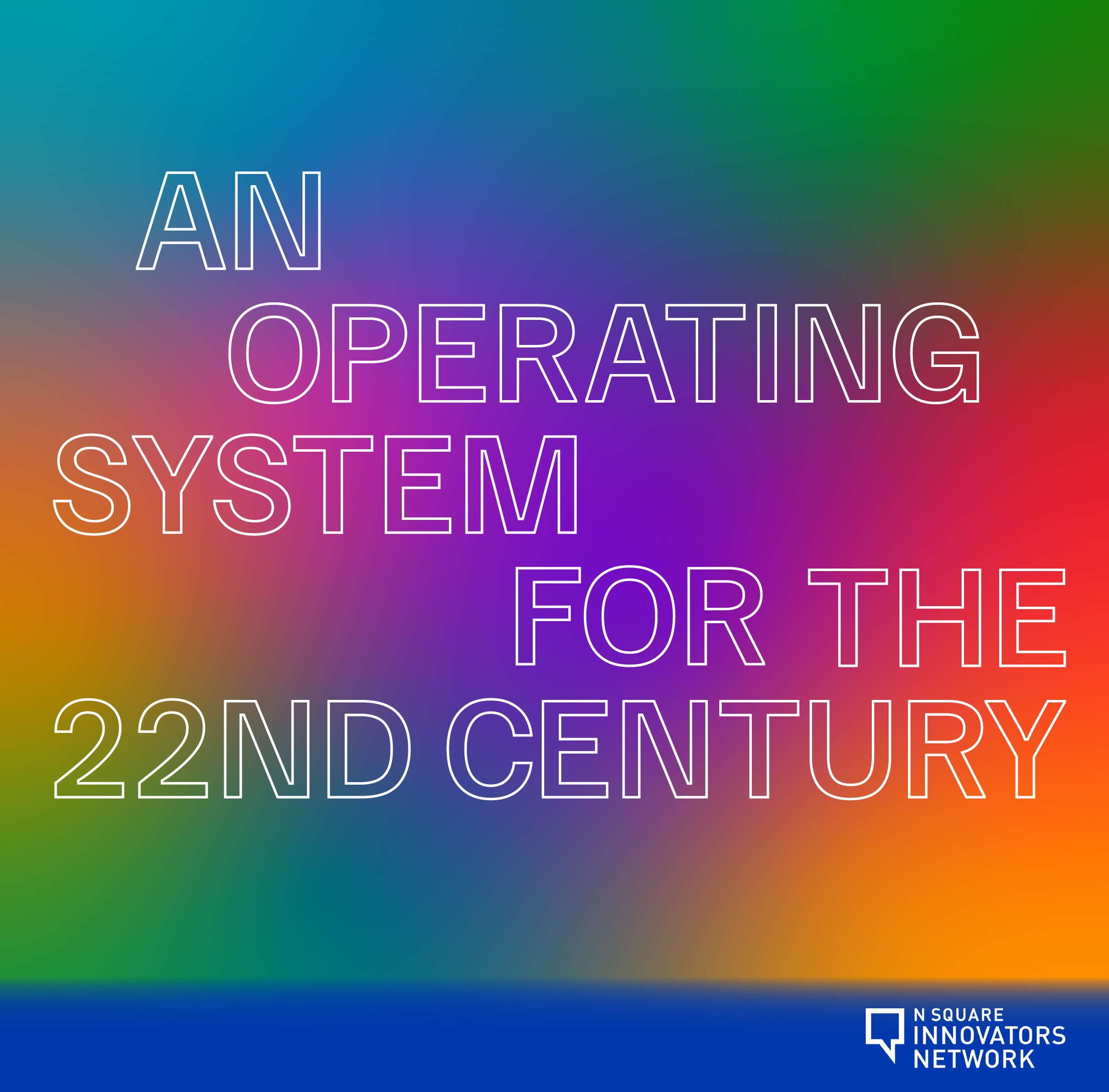
4 minute read
INTRO
What might a world without nuclear weapons look like?
With this question, N Square launched the sixth cohort of the Innovators Network Fellowship. Looking ahead to 2095, how would our world be changed if national and international security was no longer based on the threat of nuclear weapons?
This assignment proved challenging on a number of counts.
First, the complicated nature of global security. Threats to security have become more intricately intertwined and interconnected. Climate change may spark a pandemic, triggering mass suffering, economic fragility and political clashes between countries. Or, an armed conflict may contribute to ecological degradation or impair food distribution placing people at risk in other parts of the world. The potential interactions between these threats pose a dilemma for global security — each risk must be addressed on its own terms, but no single approach will be sufficient to the multifactorial challenges the world faces.
Second, the problem of mental models and frameworks. Trying to conceptualize new infrastructures and frameworks for the maintenance of peace is daunting. For people working in the security apparatus, it is difficult to step outside of doctrines of deterrence and co nflict in place since World War II. For newcomers, the complexity and secrecy of the established systems restricts access and engagement. For all, in the field or not, the need to address real and present concerns makes long term imagining difficult.
Individually, they represent different world views and conflicting understandings of what peace is and how it can be secured.
The final challenge was placing ourselves 70 years in the future. To ask what might happen and to explore how our societies might be reshaped over the next two generations to make the world more secure.
To address these challenges, and to invite as broad a discussion as possible, the fellows were drawn from a wide range of practices — they include a nuclear disarmament activist, two instructors from the U.S. military academies, a community activist, a technologist, a nuclear scientist, an investment officer with a divinity degree, a creative director and the leader of a NGO dedicated to independent journalism.
Initial conversations ping-ponged between debating the merits of a security apparatus based on the threats of nuclear annihilation and trying to imagine new approaches to human and planetary security. But as they grappled with these poles and argued with each other, the fellows began to identify the outlines of resilient structures that could help societies prepare for, and sustain, our shared future(s). Through those debates and discussions, fellows kept returning to the question, “What capacities must we cultivate and exercise for a more secure future?”
What emerged was the nascent operating system shared here.
But why an operating system?
As a metaphor, an operating system allows us to visualize the protocols and procedures that might give form to new futures without having to imagine a new world whole cloth.
In computation, an operating system mediates between different layers and applications — each working independently and often developed in different coding languages. This flexibility allows different applications working toward different purposes to function together to create a shared platform. Like a computer operating system, a planetary operating system should enable functional interoperability between different world views and different agendas.
In our case, interoperability between governance and participatory structures above and below the scale of the nation-state. This is not a small point — one of the important features of an operating system is that it does not rely on a single vision or protocol, thereby enabling many different activities and outcomes.
It is possible, and it will be tempting for readers, to try to assemble these components into a single story. But our purpose here is not to predict or perfect a particular future. Instead, we hope that this operating system will prompt consideration of alternative ways of meeting the challenges of our shared future. It is intended to invite readers to ask fundamental questions about their current worldviews, conduct closer investigation of the components necessary to secure our future(s) and debate the particulars of those components.
The eight elements of our operating system were conceived by a small group of people over a very limited time, while undoubtedly incomplete, they shine a light on the intersectional nature of the local and global challenges we face in this century and the next.
If you would like to take up these debates and investigations, following each element of the operating system we share some of the inspirations and questions that helped to crystalize and clarify our thinking.
Let us begin, stepping out of today and journey forward to 2095.

